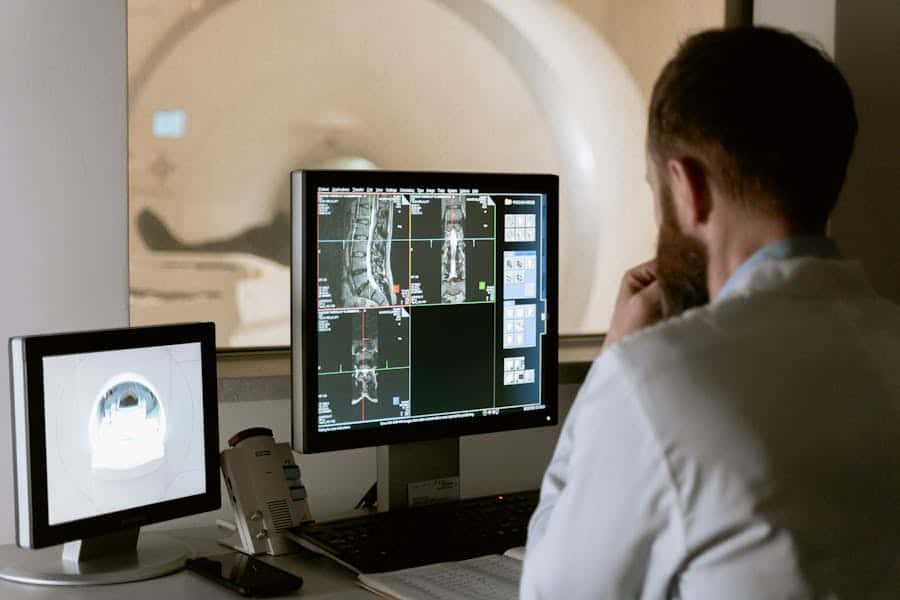
Over the last few years, artificial intelligence (AI) has been making remarkable progress in various sectors, including healthcare. Medical imaging plays a key role in diagnosing and treating patients by offering insights into their health conditions. The integration of AI into medical imaging has provided radiologists with a tool to enhance precision, efficiency, and patient care outcomes. This article delves into the impact of AI on medical imaging and its empowering effect on radiologists.
Understanding AI in Medical Imaging
AI entails machines or systems capable of performing tasks that typically require human intelligence. In the realm of medical imaging, radiology AI companies employ algorithms can analyze vast amounts of visual data from CT scans, MRI scans, X-rays, and other imaging modalities. Through machine learning techniques, these algorithms can recognize patterns based on labeled training data and apply this knowledge to interpret images. This technology supports radiologists by offering insights or aiding in the identification of anomalies.
Enhancing Diagnostic Precision
A key advancement brought about by AI in medical imaging is its capacity to enhance accuracy. Traditional image interpretation heavily relies on the experience and expertise of radiologists. Nevertheless, factors like fatigue or subjective influences may occasionally impact accuracy. By using AI algorithms to analyze images, radiologists can benefit from a second pair of eyes that might catch abnormalities overlooked during manual assessments. Moreover, AI-powered software can help identify patterns that may go unnoticed by human observers but indicate early signs of disease progression or hidden health issues. By pinpointing changes or anomalies in images more accurately than human interpretations alone, AI has the capacity to transform diagnostics and ultimately enhance patient outcomes.
Boosting Efficiency in Workflow
Another significant advantage offered by AI is its capability to improve efficiency in radiology departments. Traditionally, radiologists spend a considerable amount of time carefully examining image after image while deciphering visual data. AI algorithms can ease this load by organizing and prioritizing cases based on the urgency and severity of the issue.
With AI supporting triage processes, radiologists can concentrate on more complex cases, making the most of their time without compromising the quality of care. By streamlining workflow procedures, AI contributes to shorter report turnaround times and speeds up diagnosis confirmation. This ultimately leads to improved efficiency in healthcare institutions and enhances the overall patient journey.
Future Prospects
Although current applications of AI mainly focus on assistance and workflow enhancement, its potential seems limitless. Researchers are actively investigating how AI can enhance treatment planning by analyzing patients’ imaging data in conjunction with their pertinent clinical details. By taking into account a range of factors, such as image features, genetic information, and medical background, radiologists can develop customized treatment strategies that maximize outcomes for each patient.
Moreover, AI shows significant potential in improving real-time image analysis during medical procedures by offering immediate feedback to surgeons. With this capability, AI technology becomes a core component of the decision-making process during medical interventions. It’s worth mentioning that while AI is revolutionizing medical imaging analysis, its goal is not to replace radiologists. Instead, through a collaborative approach between AI tools and the expertise of radiologists, patients receive the care they need with more enhanced precision and efficiency compared to before.
Conclusion
Artificial intelligence has made a significant impact on medical imaging by providing invaluable support in diagnostics and streamlining workflow efficiency in radiology departments. From enhancing accuracy through identifying nuances that may escape human observers to optimizing workflow procedures for faster reporting times, radiologists are gaining greater confidence in their diagnoses while delivering vastly improved patient care.
In the years to come, the integration of machine learning algorithms with medicine opens up several opportunities for tailoring treatments based on comprehensive evaluations of clinical data. The advancements in AI technology, along with the expertise of radiologists, are enhancing the quality of healthcare by providing solutions that support radiologists and improve outcomes in the field of medical imaging.


















![Fan Expo Chicago [Convention], Donald E. Stephens Convention Center, 16 Aug What You Need to Know](https://www.thefreemanonline.org/wp-content/uploads/2024/09/Fan-Expo-Chicago-Convention-Donald-E.-Stephens-Convention-Center-16-Aug-What-You-Need-to-Know-74x55.jpg)
![Error [err_http_headers_sent] Cannot Set Headers After They Are Sent to the Client How to Fix](https://www.thefreemanonline.org/wp-content/uploads/2024/09/Error-err_http_headers_sent-Cannot-Set-Headers-After-They-Are-Sent-to-the-Client-How-to-Fix--74x55.jpg)
